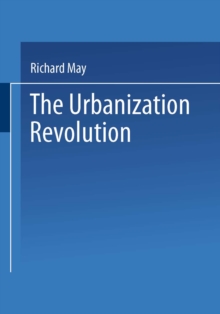
Breaking the Boundaries : A One-World Approach to Planning Education PDF
Edited by B. Sanyal
Part of the Urban Innovation Abroad series
Description
Exploring the complex arena of international planning for development has until now been uniquely the privilege of influential senior western planners.
This book calls into question many of their hallowed principles and much of the conventional wisdom still evident in the halls of academe.
At a time of increasing enrollment of foreign students in North American planning programs, the emergence of a new voice has coincided with a growing skepticism, worldwide, about old notions of planning and development in poorer and ex-colonial countries.
Now there is a need for brave innovations to reshape our understanding of the global crisis and the potential for progressive and democratic local solutions in both rich and poor nations alike.
This new voice is given expression by academics and professionals from Third World nations who received their planning education in the west and who now hold posts in major western planning schools.
Breaking the Boundaries presents their views, and those of concerned colleagues, about the need for a radically changed curriculum based on a comparative, one-world approach to planning education.
Their personal experiences as young expatriate scholars, and later as teachers of both Third World and First World students in western planning schools are seen as crucial to this need for change.
Through candid reflections and perceptive critiques of their own field- the spatial, environmental, social, design and communications disciplines - the contributors explore crucial issues in development planning from theoretical and professional practice perspectives.
Information
-
Download - Immediately Available
- Format:PDF
- Publisher:Springer US
- Publication Date:09/03/2013
- Category:
- ISBN:9781468457810
Information
-
Download - Immediately Available
- Format:PDF
- Publisher:Springer US
- Publication Date:09/03/2013
- Category:
- ISBN:9781468457810










